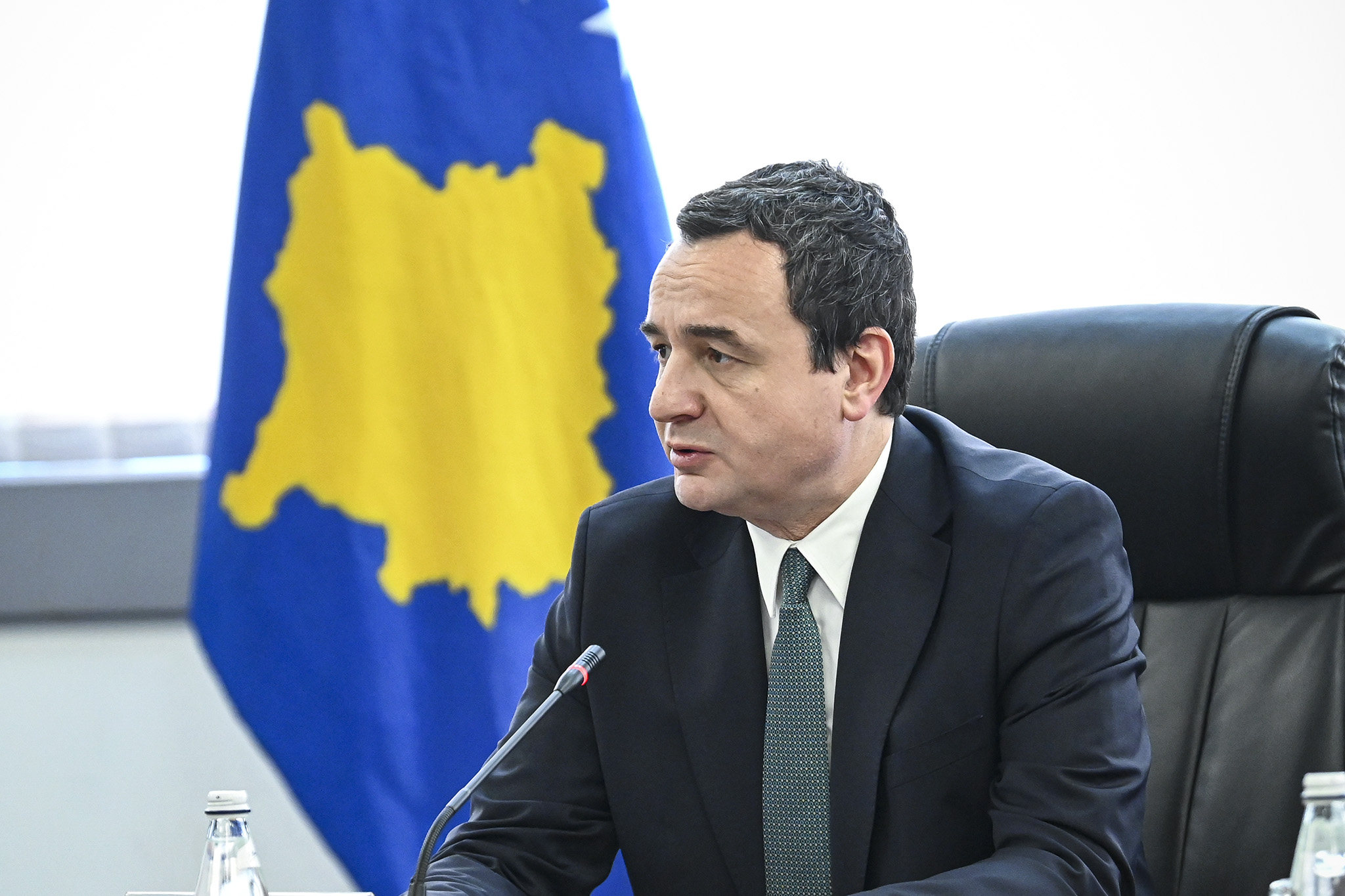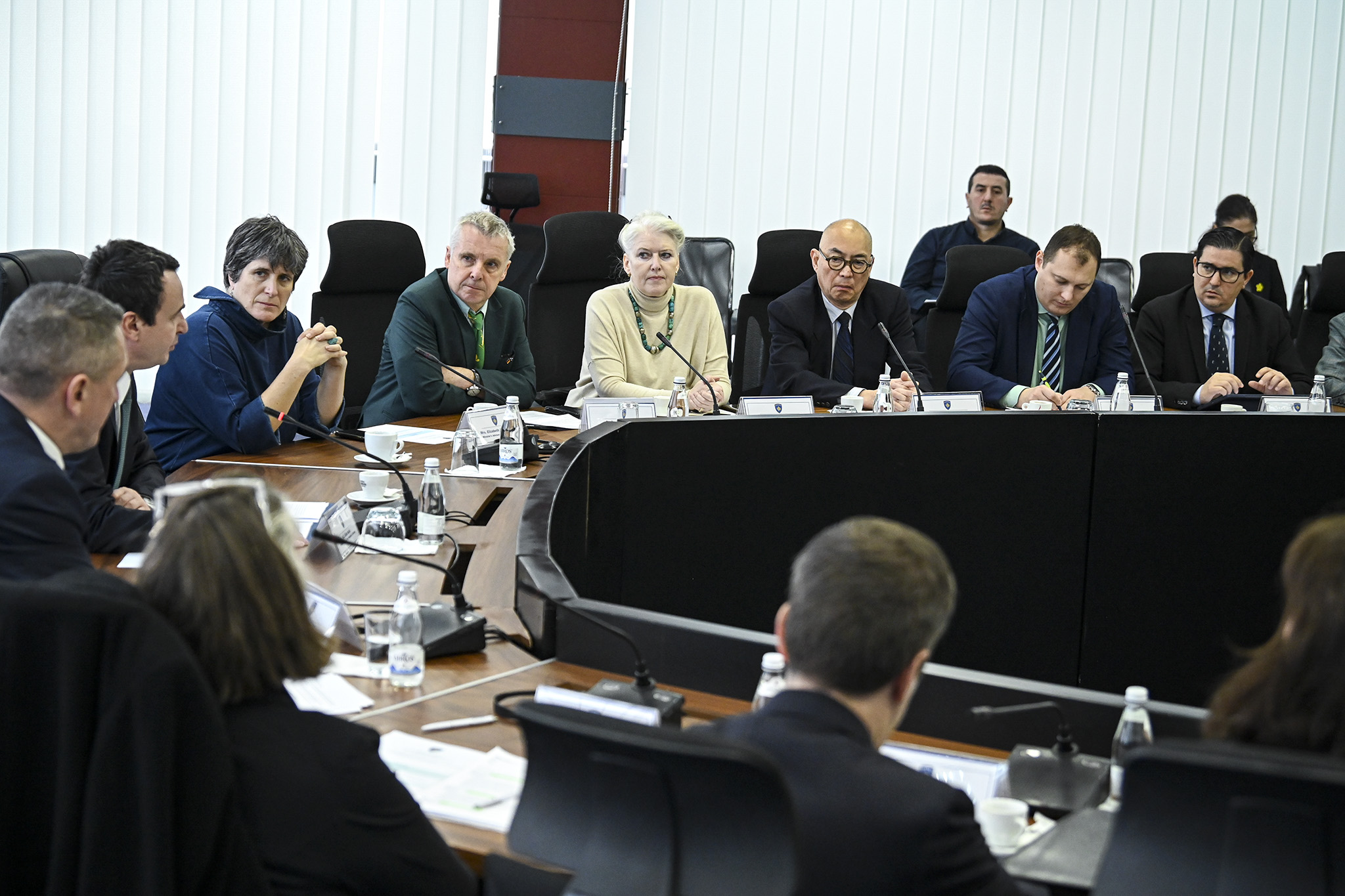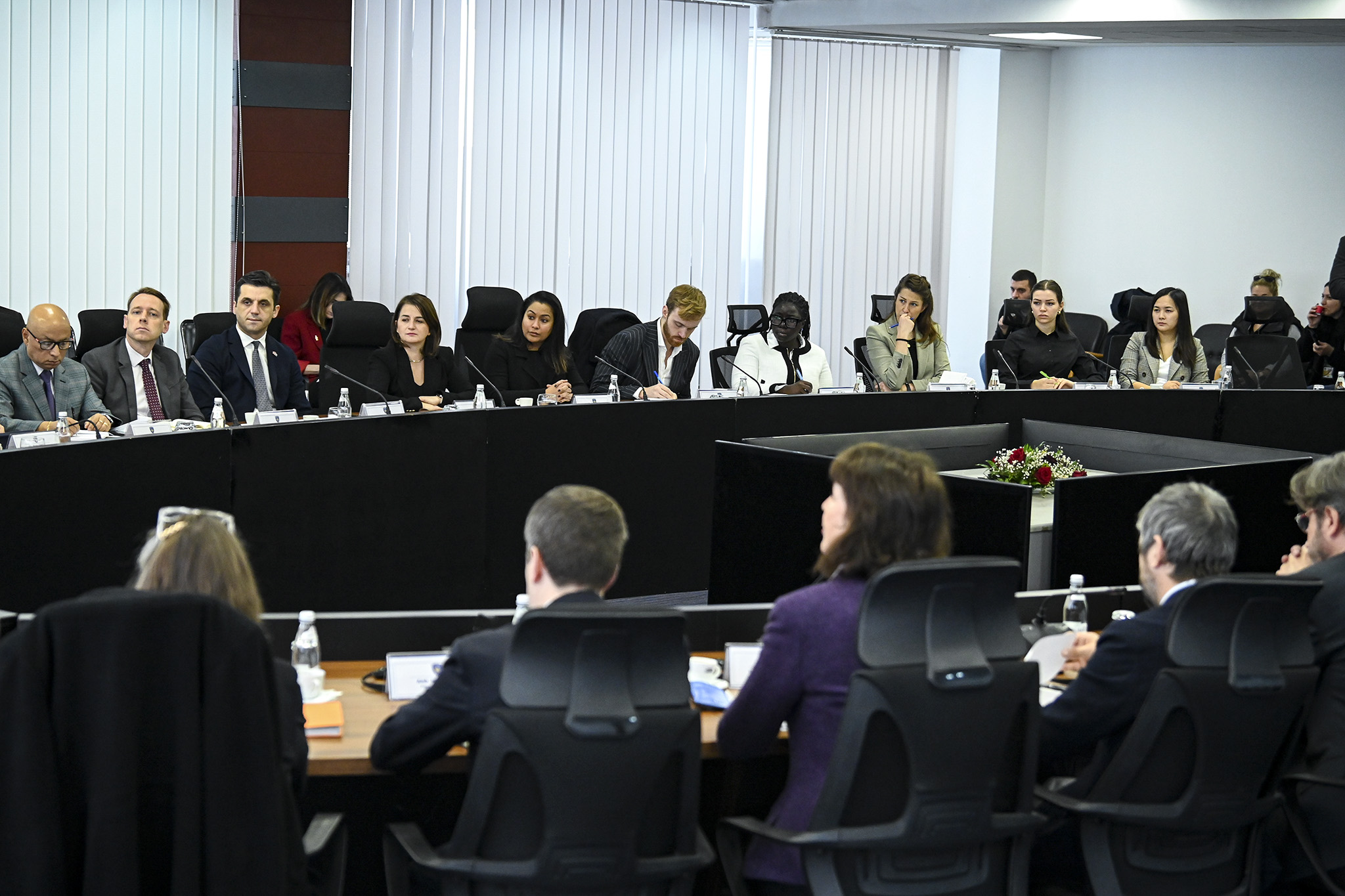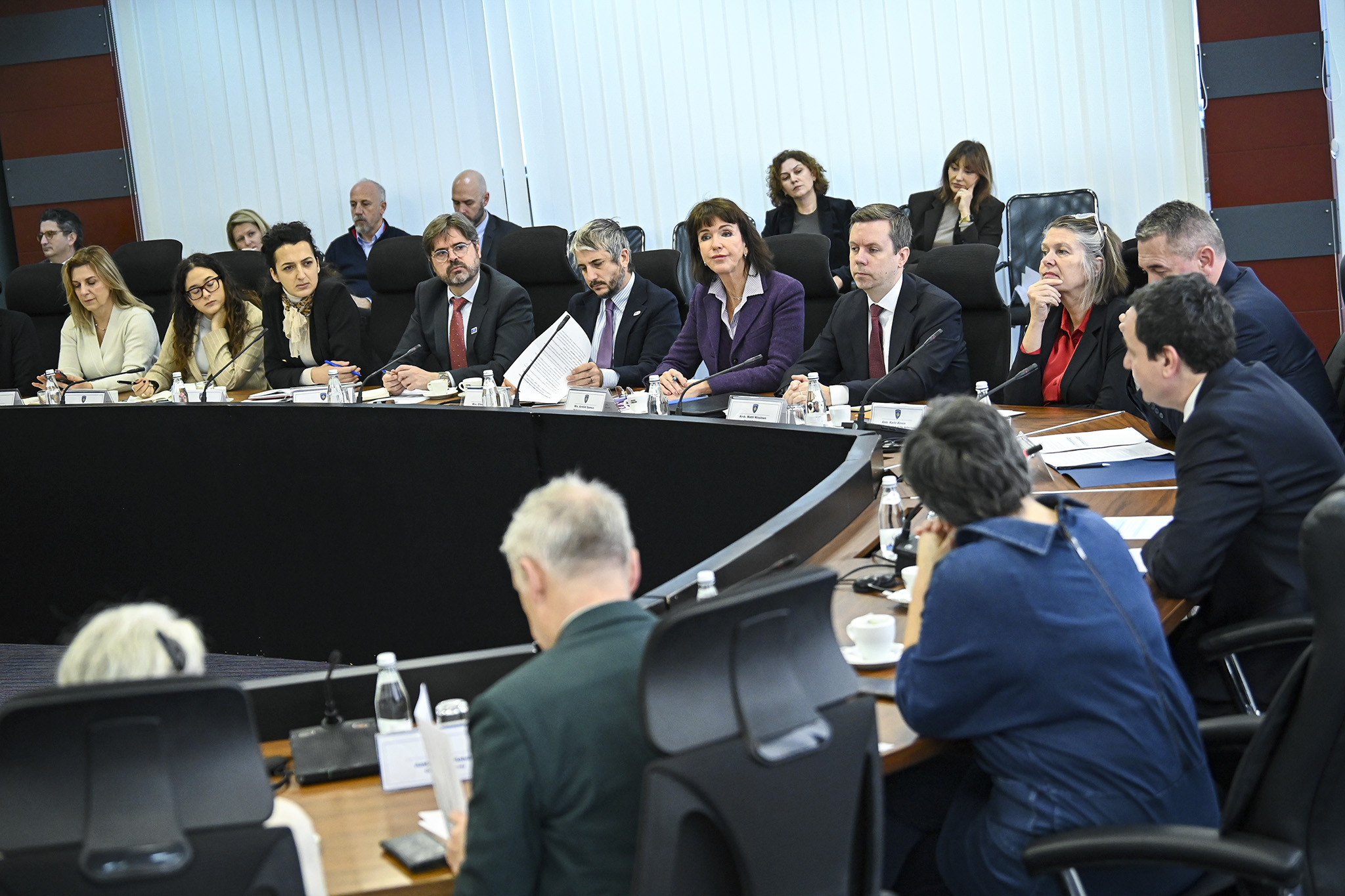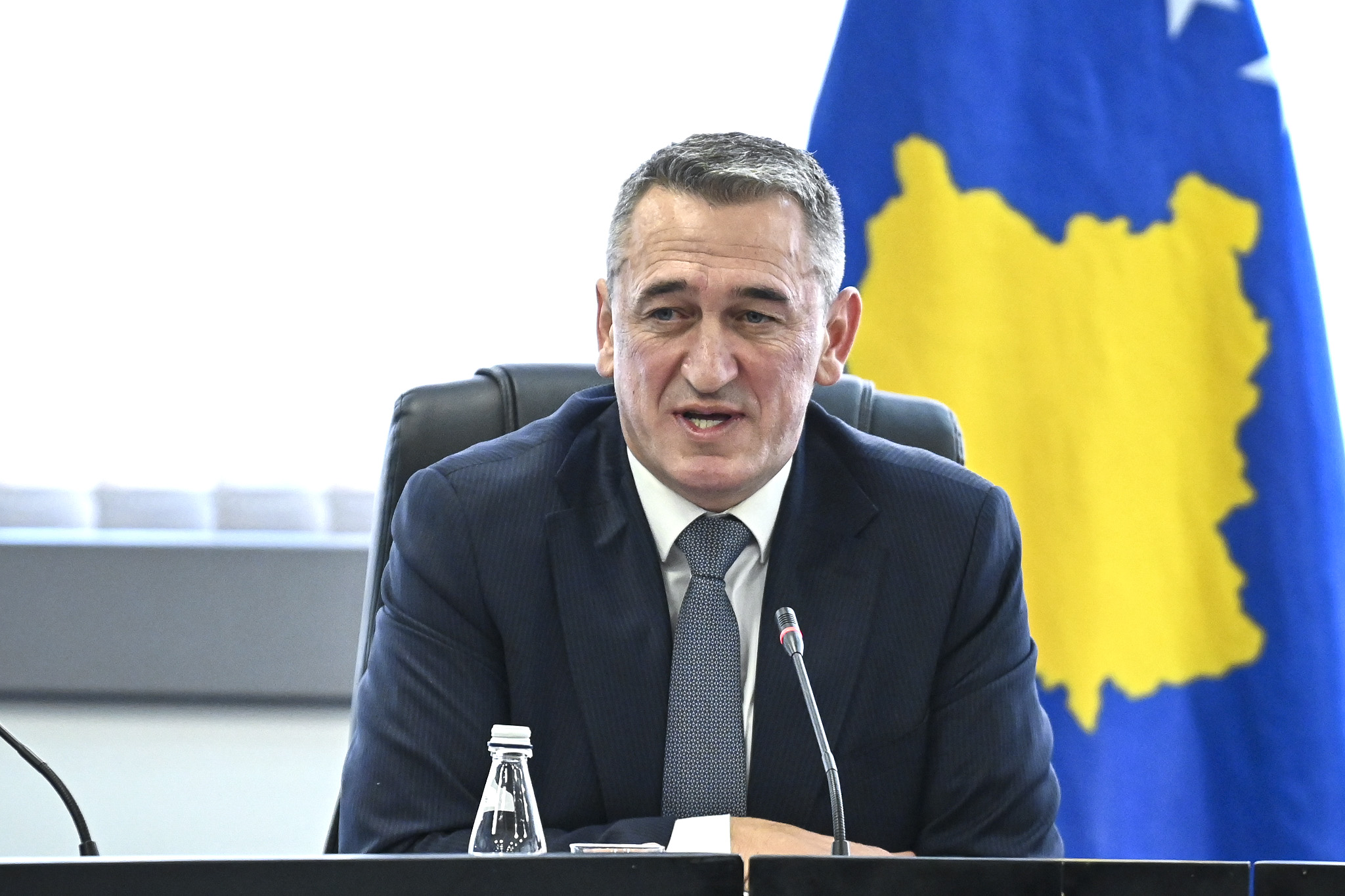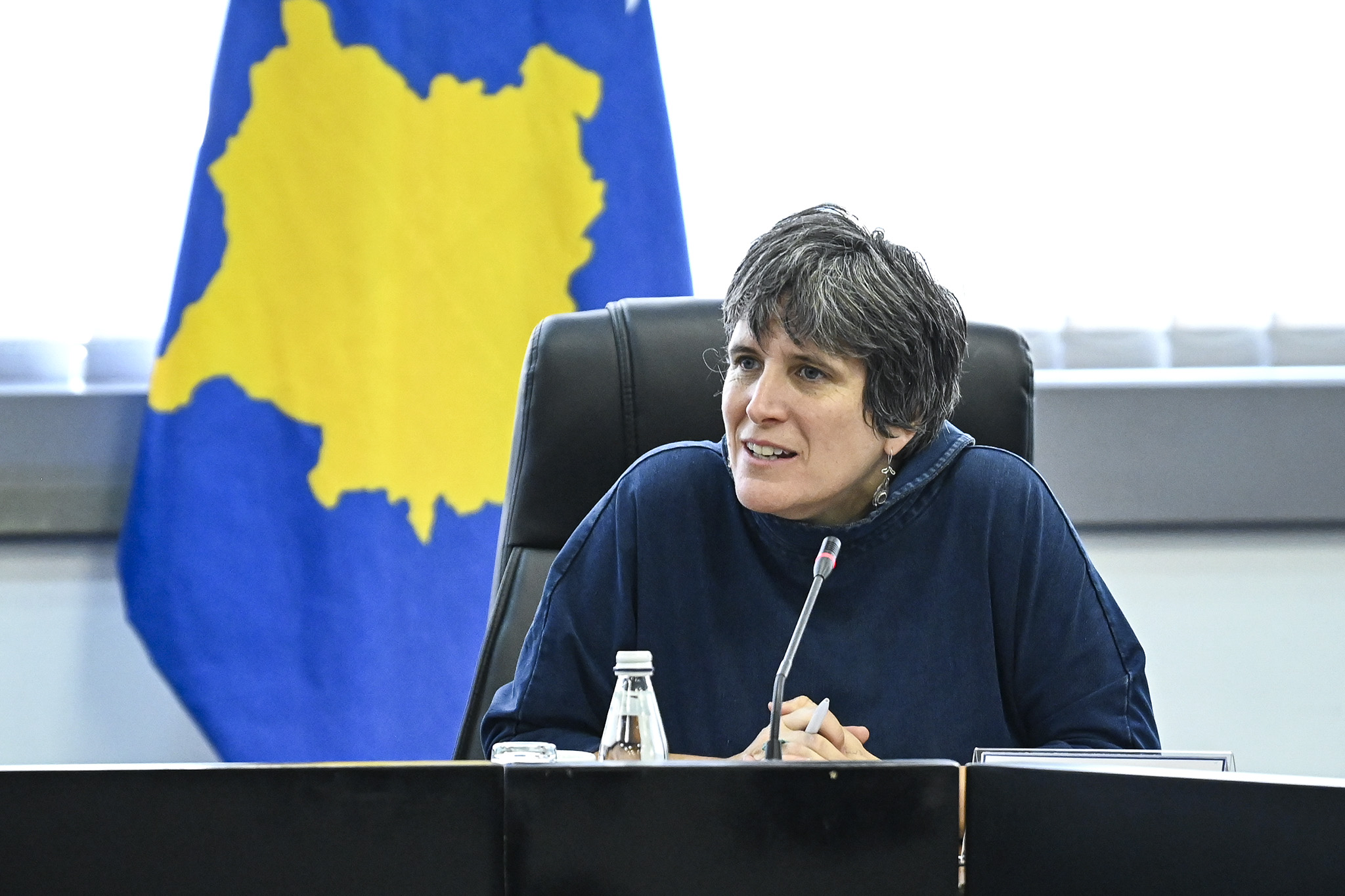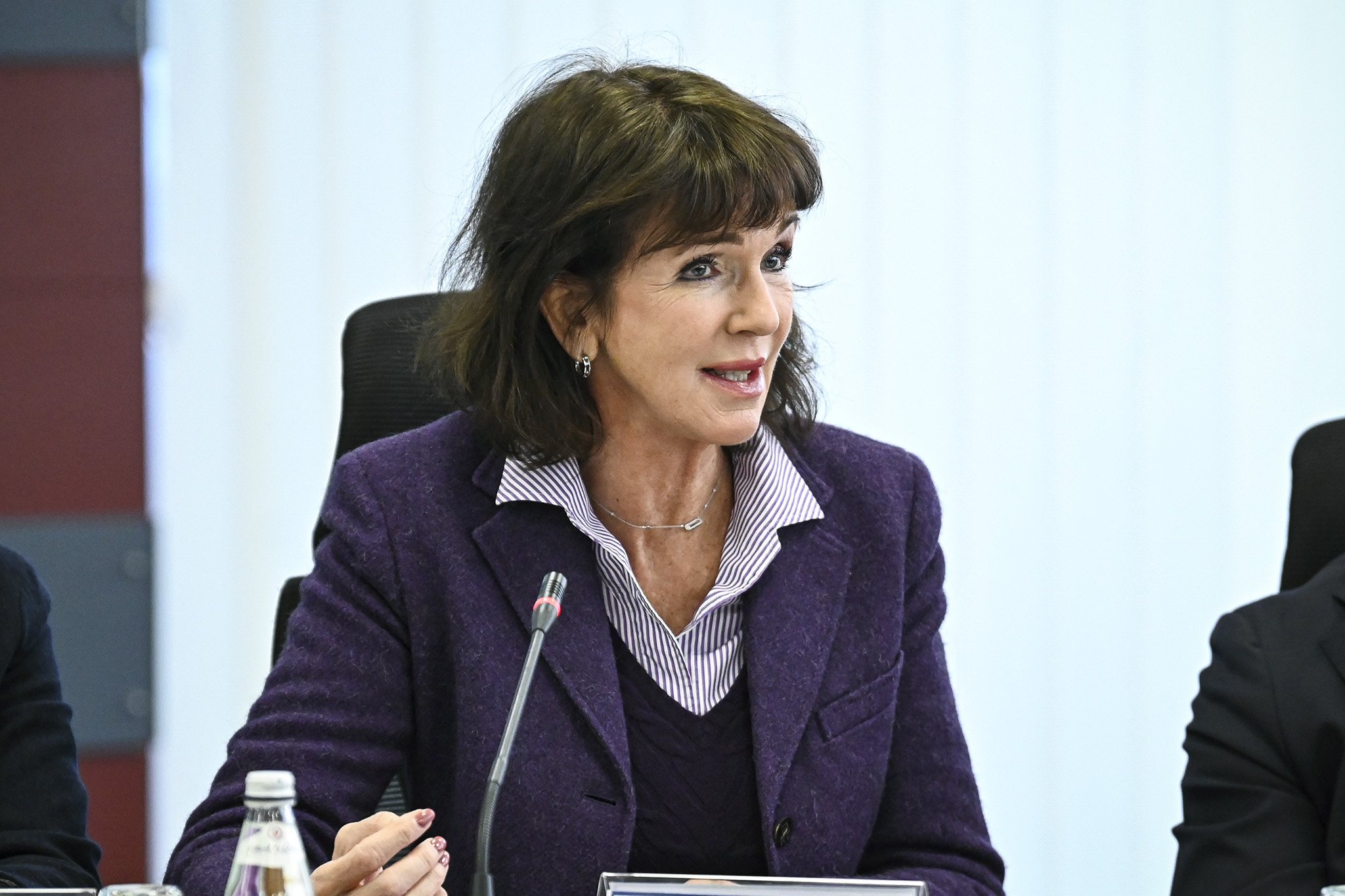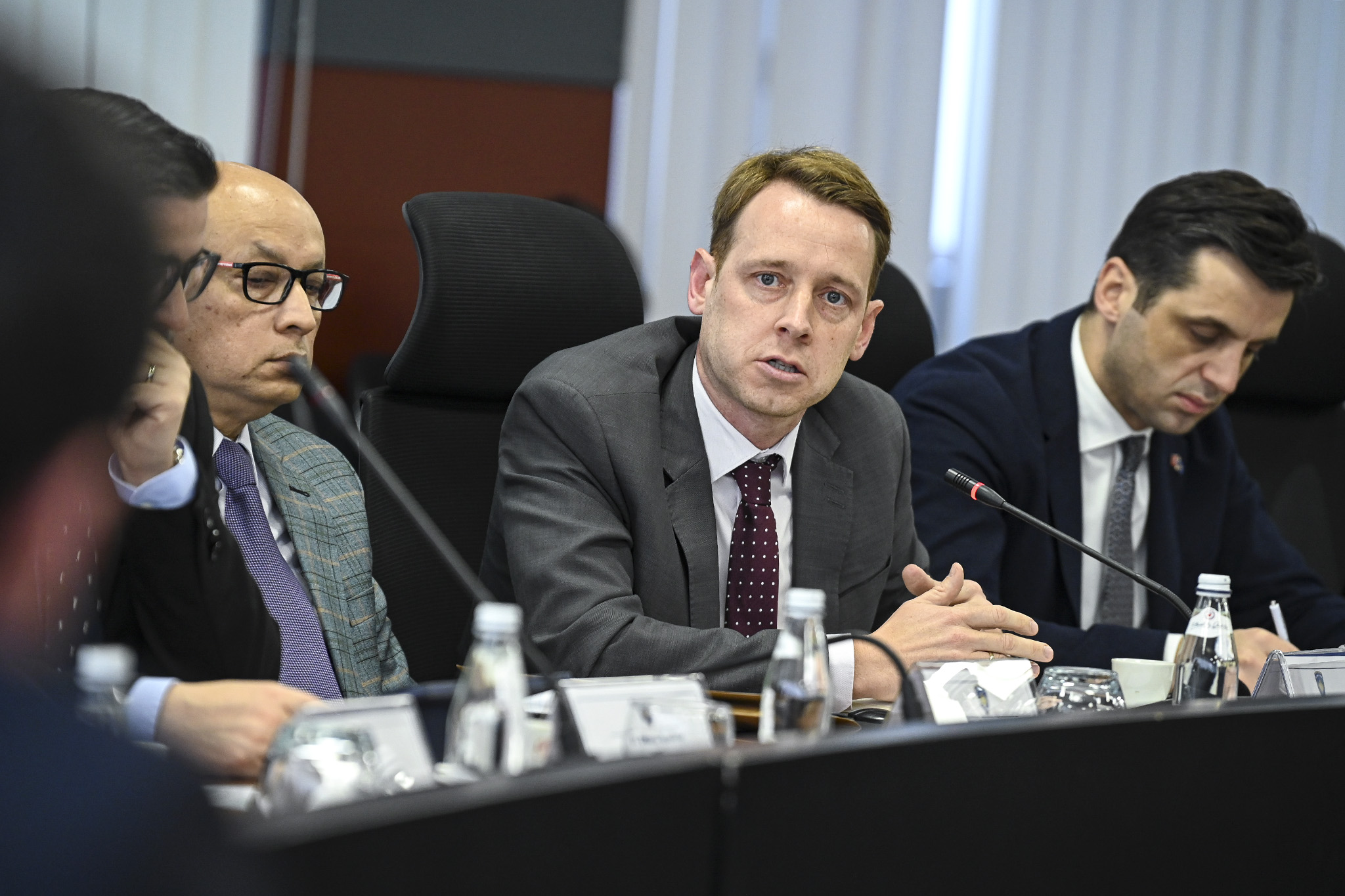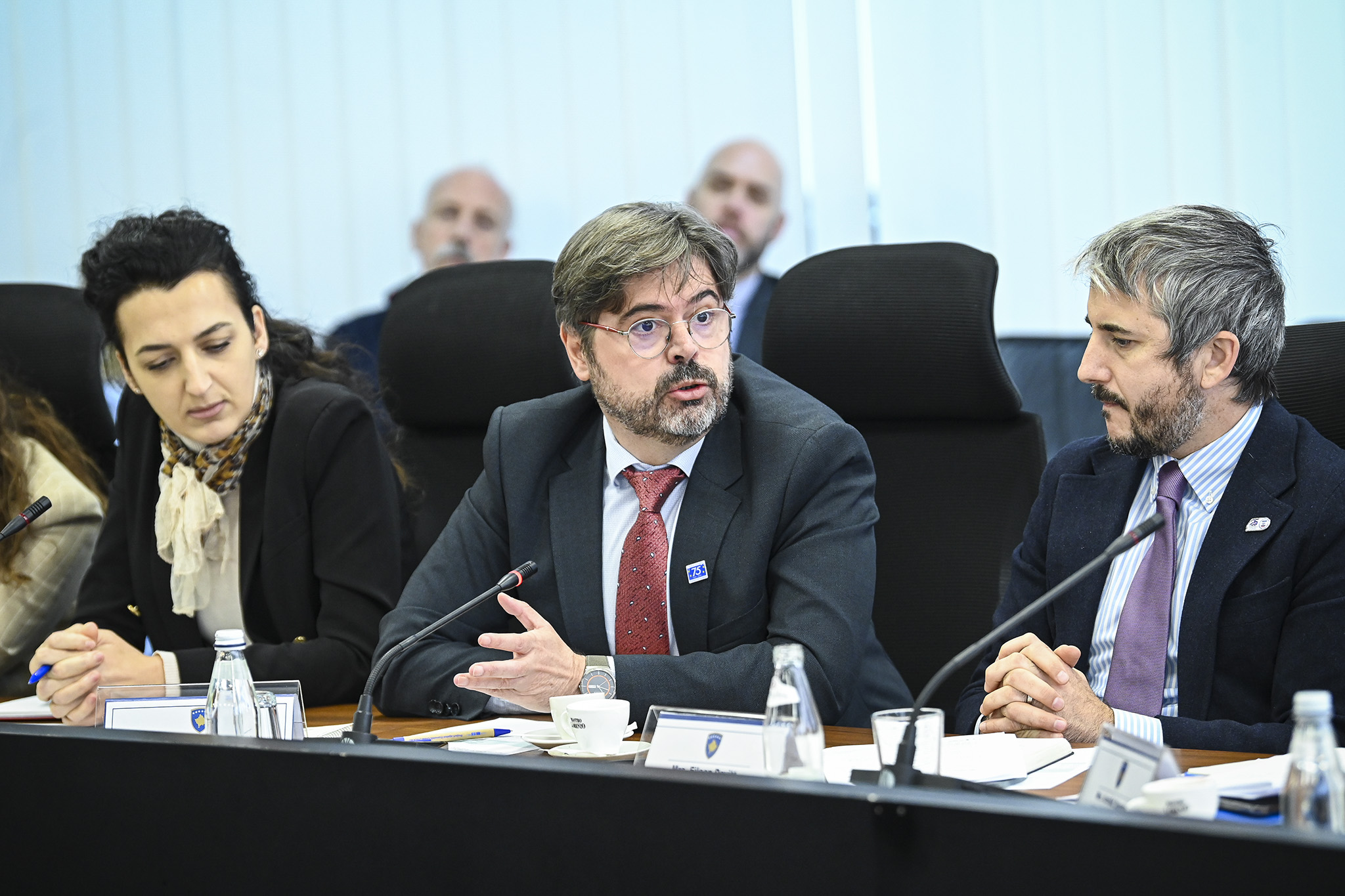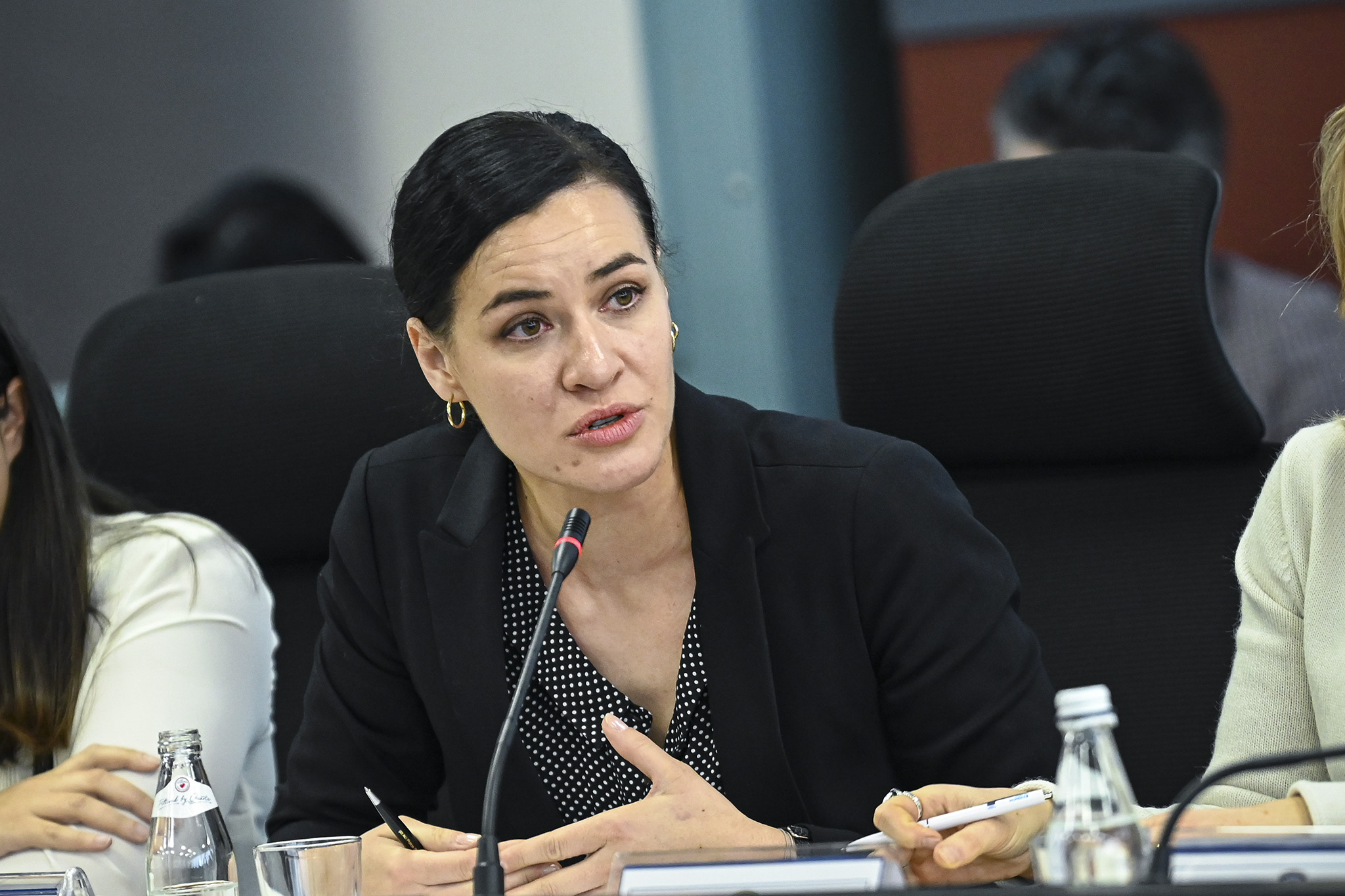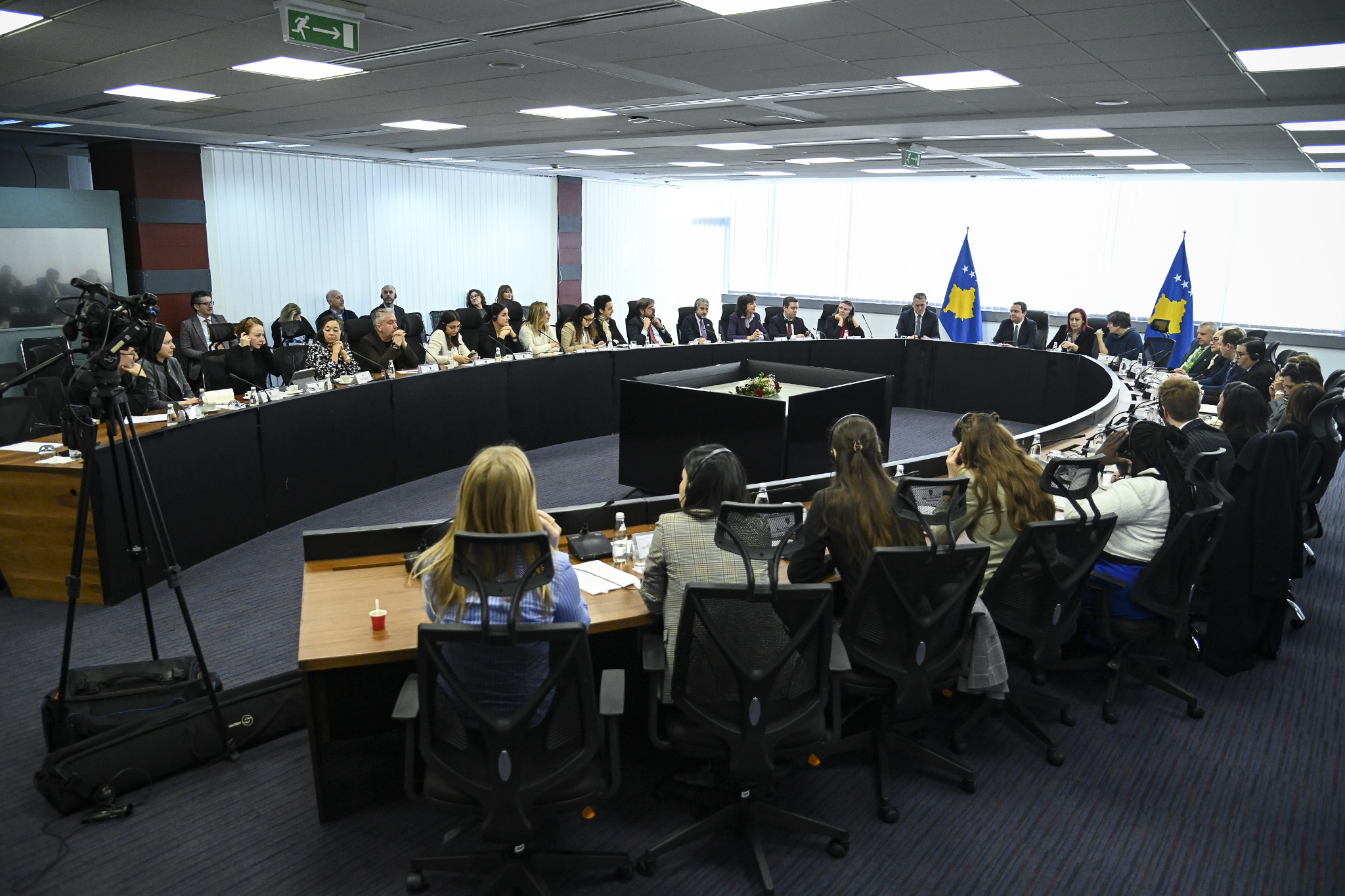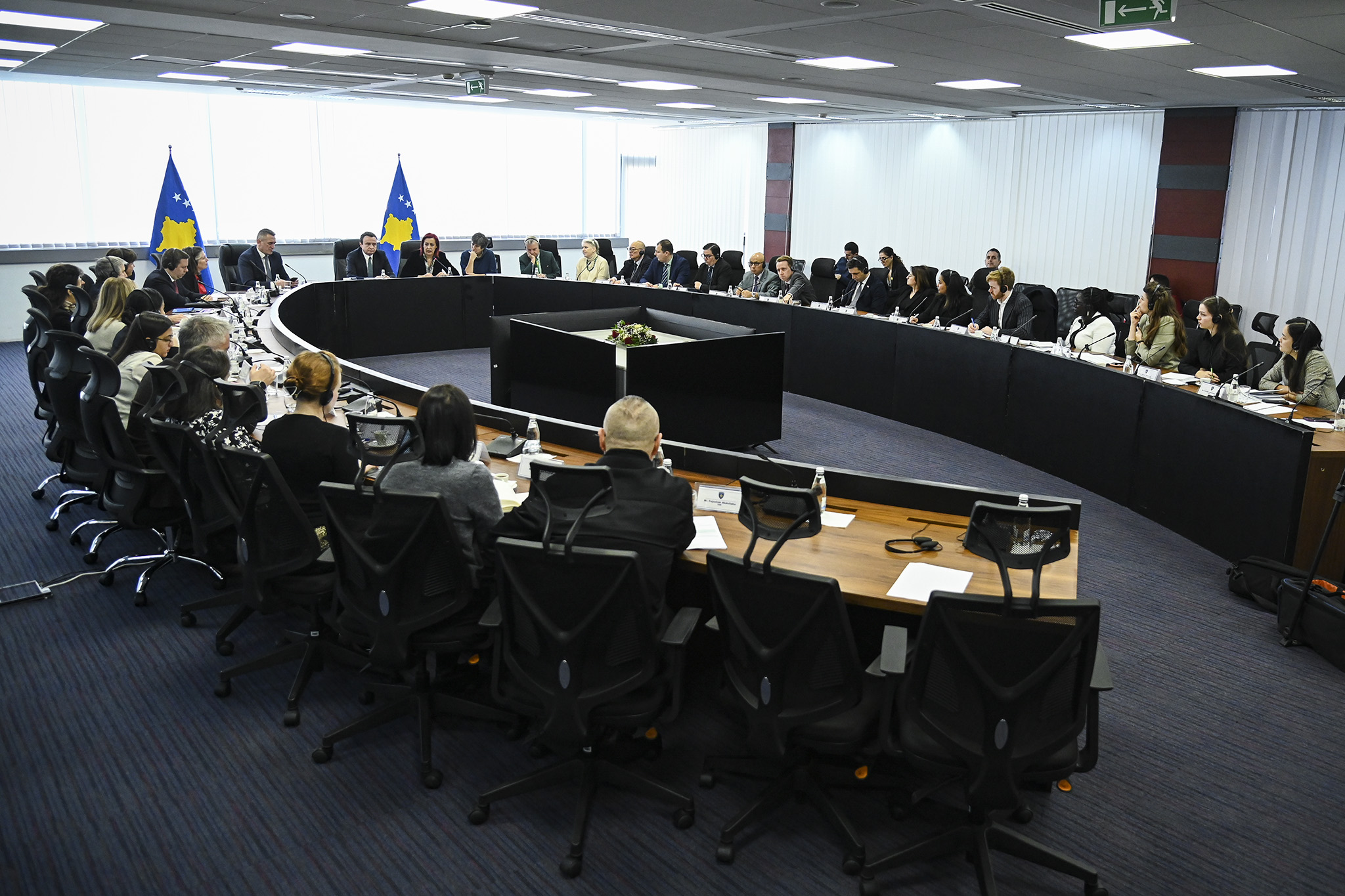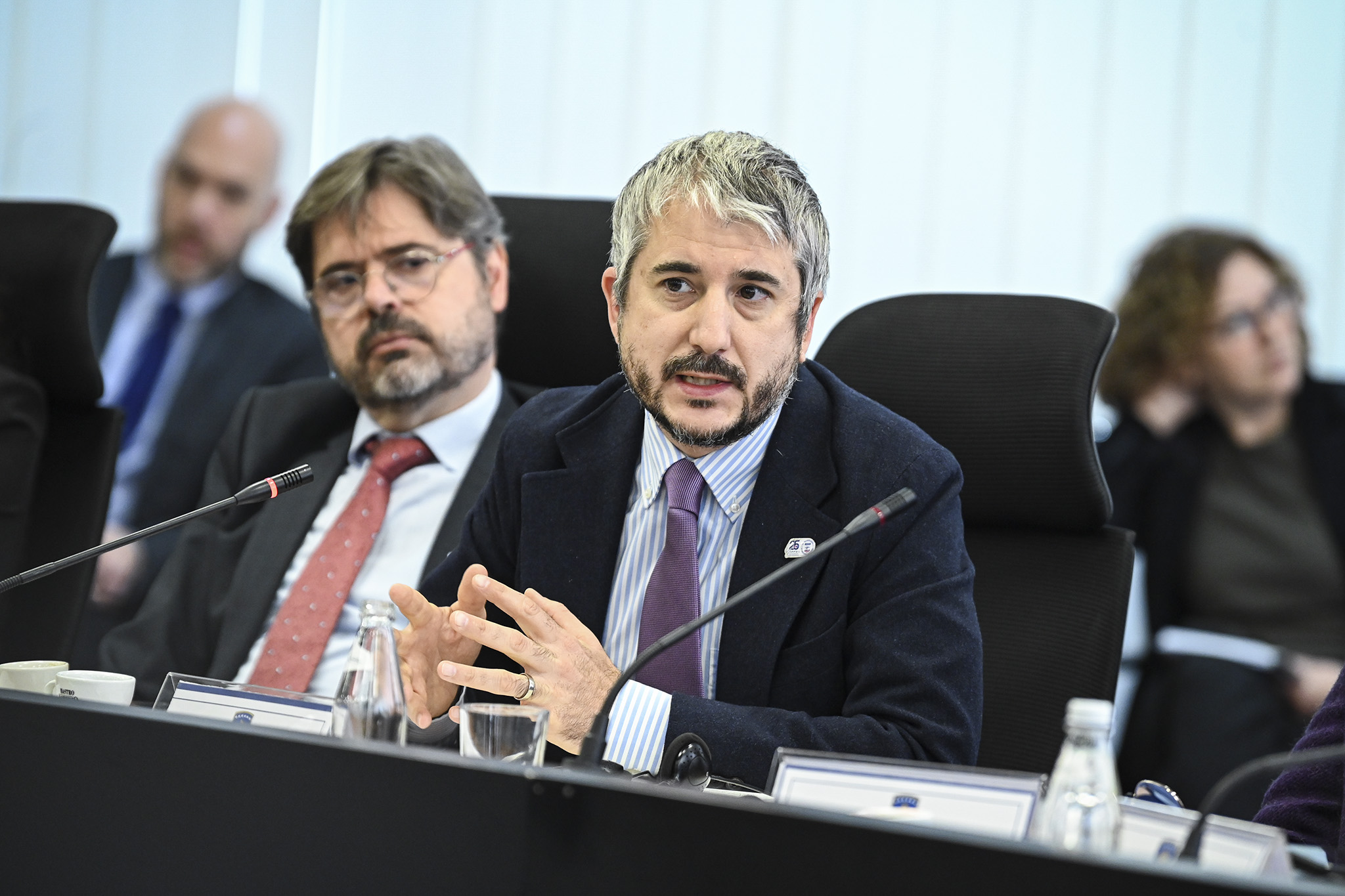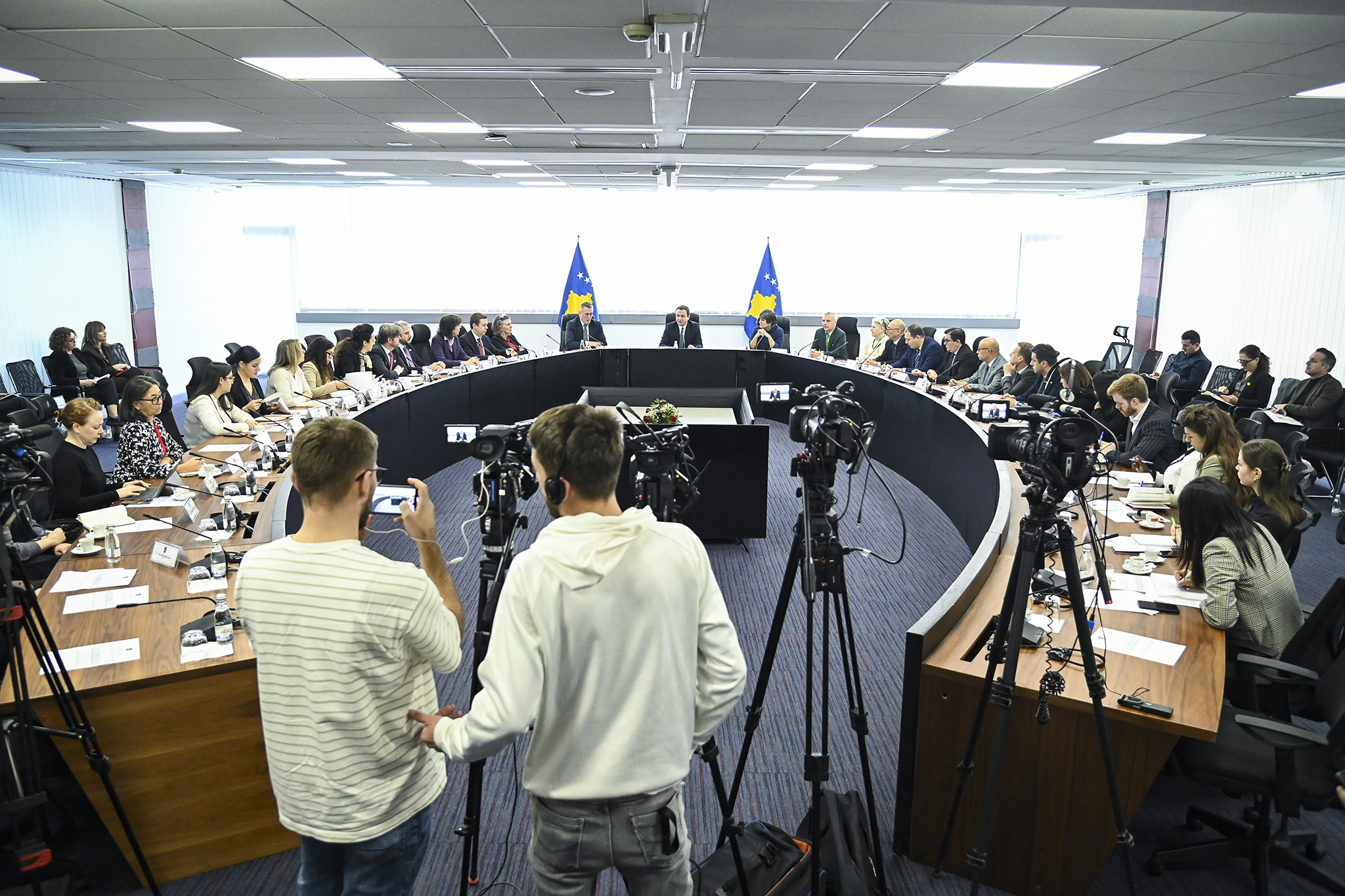Pristina, 17 December 2024
Today, the Prime Minister of the Republic of Kosovo, Albin Kurti, participated in a roundtable discussion with international partners on the economic empowerment of women from non-majority communities, organized by the Office of the Prime Minister.
This was the fourth meeting of its kind, and Prime Minister Kurti emphasized that this is the first Government to invite partners in this format to improve coordination and identify shared priorities. The topic addressed in this meeting was the unique challenges and urgency of economically empowering women from non-majority communities in our country, a subject considered important by both sides.
Some of the challenges mentioned by the Prime Minister during this meeting included the low levels of property ownership and inheritance among all women in Kosovo, the low socio-economic status of families, the greater caregiving responsibilities of women compared to men, and the high percentage of women employed in the informal labor market.
Despite these challenges, the Prime Minister stated that the situation is improving based on achievements made during his government’s tenure.
“To address the issue of women’s lack of capital, we have successfully incentivized the registration of property in the names of both husband and wife, and we have allocated a total of 11 million euros since 2021 to support women entrepreneurs in starting their businesses, helping approximately 650 women-owned enterprises,” he declared.
In this context, it was highlighted that 100,000 women have opened bank accounts for the first time, partially encouraged through the maternity payment scheme. Additionally, 55% of those employed through the “Government for Families” program are women, and 51% of beneficiaries from the Superpuna platform are women.
“With this approach, we have achieved a greater reduction in unemployment among women compared to men: unemployment among women decreased from 30% to 17% when we compare the first quarter of 2021, at the beginning of our government, with the last quarter of 2023.”
Regarding opportunities for non-majority communities, Prime Minister Kurti also spoke about several specific initiatives, such as the process of verifying university diplomas to enable members of the Serbian non-majority community who have studied at the university in North Mitrovica to apply for jobs in Kosovo’s institutions. Additionally, he noted that 884 scholarships for high school studies have been awarded over the past two years to students from the Roma, Ashkali, and Egyptian communities, 51% of whom were girls. Last year, 55 scholarships were provided to students from these communities attending public universities, with 64% of recipients being females.
In conclusion, the Prime Minister thanked all partners for their contributions, expressing his belief that in the next meeting, they will be able to highlight specific developments in addressing the limiting factors that reduce the opportunities for women from minority communities to contribute their skills to Kosovo’s economy and their personal lives.
Prime Minister Kurti’s full speech:
Your excellencies, ambassadors and heads of missions,
Minister Rašić,
Ladies and gentlemen,
This is the fourth time we’ve come together in this series of meetings for Kosova’s international partners focused specifically on non-majority communities. I believe we are the first government who has invited our partners to come together with us in this way, to improve our co-ordination and identify our shared priorities.
After our first meeting with you, we’ve taken each time a different focus within the issues facing non-majority communities. Today from looking around the room at what is I think a record number of participants, I see that the issue we have chosen to address is one that you also see the importance of.
We’re here to talk together about the particular challenges and urgency of the economic empowerment of non-majority women in our country. We know that intersectional issues make it particularly difficult to address the situation of the many, many women from minority communities who are living in poverty in Kosova.
As Kimberlé Williams Crenshaw, who coined the term ‘intersectionality’, said, “Sexism isn’t a one-size-fits-all phenomenon. It doesn’t happen to black and white women the same way.” We could adapt that to the Kosovo context and say that the sexism that an Albanian woman experiences is probably not the same as the experience of the Croatian, Ashkali and Roma women entrepreneurs I spoke to last month at UNDP’s fair in Janjeva. Likewise, I think Ramiye Shalja would tell us that a rural Turkish woman in Mamusha comes up against different challenges accessing the labour market from those, for example, faced by a Serbian woman living in a town. My Deputy Prime Minister, Emilija Redžepi, can talk powerfully about the particular issues facing the Bosnian community which are different again.
Nevertheless, there are some things that are depressingly the same:
· Levels of property ownership and inheritance are low for all groups of women in Kosova. They are generally lower, the more desperate a family’s socio-economic status is. Overall in Kosova, over 88 per cent of women entrepreneurs open businesses with self-financing, without loans or other external support;
· Women’s care responsibilities are considerably – and back-breakingly – greater than men’s: on average, women in Kosovo spend 6.2 hours on unpaid care work per day;
· And when women – from whatever community in Kosova – do work outside the home, they are more likely to work informally, without the security or status or power that are given by contracts and pension contributions, paid sick leave and workplace protection. 65% of the jobs in the informal economy are held by women.
But although there is a dizzyingly long way to go, the situation is improving.
· To address the issues of women’s lack of capital, we have successfully incentivised the registration of property in the names of both husband and wife, and dedicated a total of 11 million euros since 2021 to supporting women entrepreneurs to open their businesses, helping around 650 women-owned enterprises. I know that Minister Rašić can tell you about the specific support to women entrepreneurs from non-majority communities.
· To reduce the burden of care on working parents, we are investing in the building, renovation and adaptation of a total of 55 kindergartens. In a less than three and e half years the member of children who are attending kindergartens all over Kosova increased by 33 %.
· We have incentivised the formalisation of jobs and offered direct support to the employment of 12 thousand women. During the time of our government, more than 100 thousand women have opened bank accounts for the first time, incentivised in part through the scheme we initiated of payments to support women when they give birth. We’ve employed more than 2.600 people through our ‘Government for Families’ programme, and of these 55% are women. We have created the Superpuna, SuperJob, platform which subsidises the salaries of new hires aged 18-29, and about 14 thousand young people have been employed this way – 51% of them are woman. With these approaches, we have achieved a drop in unemployment greater for women than for men: unemployment for women reduced from 30% to 17% when we compare the first quarter of 2021, at the beginning of our government, to the final quarter of 2023.
These are the general achievements we have made in the economic opportunities for women, but again as Kimberlé Crenshaw would tell us, “Treating different things the same can generate as much inequality as treating the same things differently.” So we have also undertaken some specific initiatives for non-majority communities and have seen how women have been ready to rise to these opportunities.
As an affirmative measure for Serbian speakers who have studied at the university in North Mitrovica, last year we restarted the process of verification of the university’s diplomas in order to enable these graduates to apply for jobs in Kosova’s institutions. Each diploma submitted for verification, I see as a commitment to building a better Kosova together. And there have been 358 university diplomas submitted since we restarted the process last year! I take the opportunity to thank the British and Swiss Embassies for their support to the work of the Diploma Verification Commission and know that they will be pleased at how we are seeing an increase in applications by women – 57% of applicants this year have been female. We believe that the recent creation of the ability to apply online through the eKosova platform will raise this percentage even more.
The same appetite for opportunity has been among women from the Roma, Ashkali and Egyptian communities: we have offered 884 bursaries for high school studies over the past two years and of these, 51% went to girls. Last year we also offered 55 bursaries for students from these communities who attend public universities. 64% of these have gone to young women.
We held the first Open Day for non-majority community youth at the Kosovo Academy for Public Safety last year. I attended this event, together with ministers Nenad Rašić and Xhelal Sveçla, and we had the chance to talk to enthusiastic youngsters who were inspired by the idea of applying to the police or other public safety sector jobs. The impact of that day could be seen when we heard the recruitment rates in the police this year.
I remember well sitting with OSCE colleagues at the end 2022, despairing because all that year, there was just one Roma – a man – and not one single Ashkali or Egyptian, who was recruited to the police.
In 2023, we could see some improvement – a total of 9 Roma, Ashkali and Egyptians were sworn into the Kosova Police, and 3 of them were women.
This year, after the impact of that Open Day and our other joint initiatives, 29 Roma, Ashkali and Egyptians were accepted into the police. Of these, 8 are women – a slightly better ratio of women to men than in that police cohort overall. Of those 8, 4 were at that event I attended with my two ministers last year. It’s rare that you get to see the immediate impact of someone’s aspirations being raised; to see the transition – from a shuffling school-leaver in Vushtrri being told that she’d welcome if she applied, transforming to a smart confident woman saluting us at the culmination of the cadet graduation ceremony.
There is one more issue I want to raise before I end this summary of what we see as the challenges, and some of the ways that we’ve found to meet them, wanting to hear from minister Rašić and then from you about the successes you’ve achieved in supporting non-majority women’s economic empowerment, and the ideas you have for what more we can do together.
It relates to some of the cases that those new police officers may find themselves facing, and a phenomenon which is cutting short the access to the labour market, and even to the education which needs to precede it, for hundreds of young girls in Kosova every year. We need your help in tackling the early marriage which, according to the MICS survey findings of the Kosova Statistics Agency together with UNICEF, is the fate of 31% of girls from Roma, Ashkali and Egyptian communities. I’m grateful to those of you whose colleagues have joined our Inter-Institutional Working Group on Reporting and Preventing Early Marriage in the Roma, Ashkali and Egyptian Communities which came out of the 16 Days of Activism against Gender-Based Violence exactly one year ago.
We are lucky to have some inspirational women from the communities and some tireless community NGOs represented on the Working Group, and an ambitious action plan which they have put together, in collaboration with the representatives from local and central institutions, and international partners, chaired by my advisor Elizabeth Gowing. The group is addressing the issue of early marriage from all angles, but we need this to be recognized as a part of the landscape in which your projects operate – part of the cross-cutting issues of gender, gender-based violence, communities and Rule of Law which your projects address. Much has been done, but then we look at the statistics and realise, in the time since this group was established, just how many young girls – some as young as 13 – have lost their childhood, their health, and their opportunities because of a practice which we all need to work together to prevent.
I believe we will come together again like this next year – that is the basis I am working on – and I hope that when we do, we can point to specific developments in addressing all of the limiting factors which reduce the chances of minority community women to contribute their skills to Kosova’s economy and their better lives alike. I’m so grateful for our partnership in this, and look forward to hearing more from you on how we can work together.
Thank you!
Last modified: December 23, 2024
